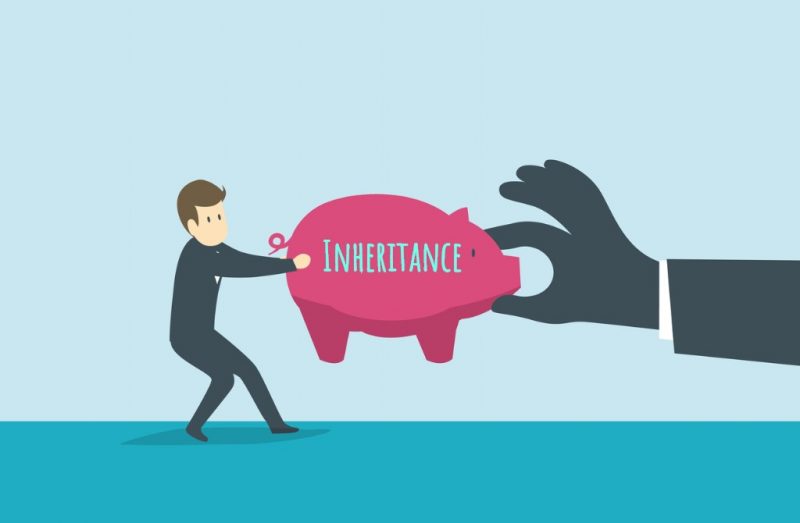

Medicaid is a federally-funded state-run program that provides healthcare for people with limited income and assets. For example, it pays for services typically not covered by Medicare for low-income seniors, such as nursing home care and personal care services.
If you are the current recipient of Medicaid or believe you may have to seek Medicaid down the road, it’s important to know that Medicaid can try to collect money from your probate estate after your death. For many seniors, the only asset remaining following an extended nursing home stay is their home.
The federal government has a policy that mandates all states attempt to recover any amounts paid by Medicaid for a person’s long-term care when that person passes away; this is known as “Estate Recovery.”
The Pennsylvania Estate Recovery Program allows the state to recover Medical Assistance payments from the probate estate of an individual who was 55 years of age or older when he or she started receiving nursing facility services or home and community-based services.
A probate estate exists when a person dies and his or her assets are to be distributed by will or under state law. Any money collected by the Estate Recovery Program is returned to the Pennsylvania Department of Human Services’ (the “DHS”) long-term care program to assist others in need of long-term care services.
The Medical Assistance Estate Recovery only happens after the death of the recipient of Medicaid.
The personal representative of the deceased recipient’s estate—the Executor or Administrator—will have to give the DHS notice by requesting a statement of claim, which is an accounting of all Medical Assistance payments made for the decedent’s nursing home services, home, community-based services, and related hospital and prescription drug services.
For Medicaid qualification purposes, some assets are considered “non-countable” or exempt and are not considered. This means that you will not be forced to sell your home or car to qualify for Medicaid benefits; however, these assets are only exempt while you are alive.
Typically, your primary residence, automobile and furniture are not included when determining your eligibility for Medicaid, but the Estate Recovery Program can go after your estate for these assets after your death. Your loved ones get whatever is left over after Medicaid is reimbursed.
For example, if a loved one spent two years in a nursing home and received Medicaid, his or her estate would be subject to Medicaid Estate Recovery if he or she died owning a home worth $350,000. The family would be required to sell the home and pay DHS back for services rendered. Only the amount of the sale proceeds in excess of the Estate Recovery payment would go to the family.
Pennsylvania’s Estate Recovery Program can only reach probate assets; any non-probate assets—retirement accounts, jointly-owned property by the decedent and another, and life insurance policies paid directly to a beneficiary—will transfer outside of the estate recovery process.
Through Medicaid, you can shield some or all your assets from the Medicaid Estate Recovery Program.
For example, you can engage in advance planning well in advance of needing care. This will typically include, among other things, gifting to irrevocable Medicaid Asset Protection Trusts. Alternatively, if no advanced planning was done and care is suddenly necessary, emergency Medicaid can be used to save the family hundreds of thousands of dollars that would otherwise be lost.
There are many effective strategies available, regardless of your financial circumstances or timing for care.
Since Medicaid regulations and Pennsylvania’s probate laws are complex, the best thing you can do is consult with a professional familiar with both.
With nursing home costs in Pennsylvania averaging approximately $10,000 per month, you could potentially save tens to hundreds of thousands of dollars, allowing you to protect your legacy and leave behind an inheritance for your loved ones.
The attorneys at UTBF stand ready to answer you questions and help you figure out how to protect your legacy from Pennsylvania’s Medicaid Estate Recovery Program.
As always, we are available to answer questions and assist you with your Medicaid Planning. Please contact our office at (610) 933-8069.
Check out our other great articles throughout this site that more specifically address the different ways to protect and preserve your assets. Click here for more articles!
For assistance developing a comprehensive estate plan or nursing home asset protection plan in Pennsylvania, please contact Douglas L. Kaune, Esquire at (610) 933-8069 or email him at dkaune@utbf.com. Doug’s entire practice is focused on elder law, Medicaid application, estate planning, trust planning, estate administration and protection of clients’ assets from nursing home spending and estate and inheritance taxation. Unruh, Turner, Burke & Frees, P.C. is a full-service law firm which has three convenient office locations in Phoenixville, West Chester and Paoli, Pennsylvania. The firm primarily services clients in Chester, Montgomery, Delaware, Philadelphia, Bucks and Berks Counties, but can represent clients throughout Pennsylvania.